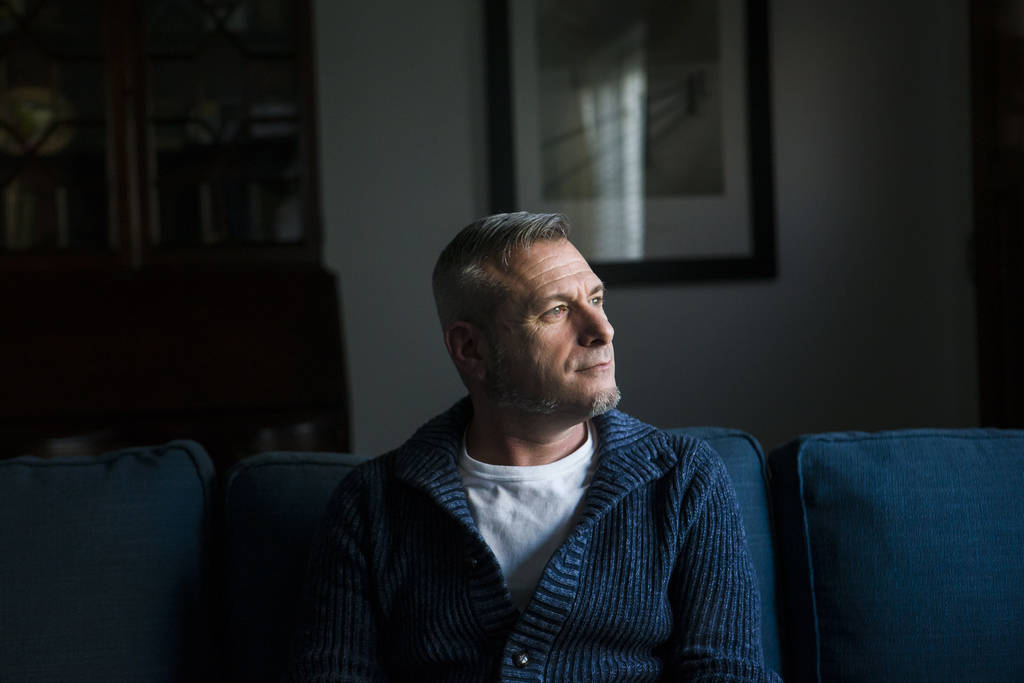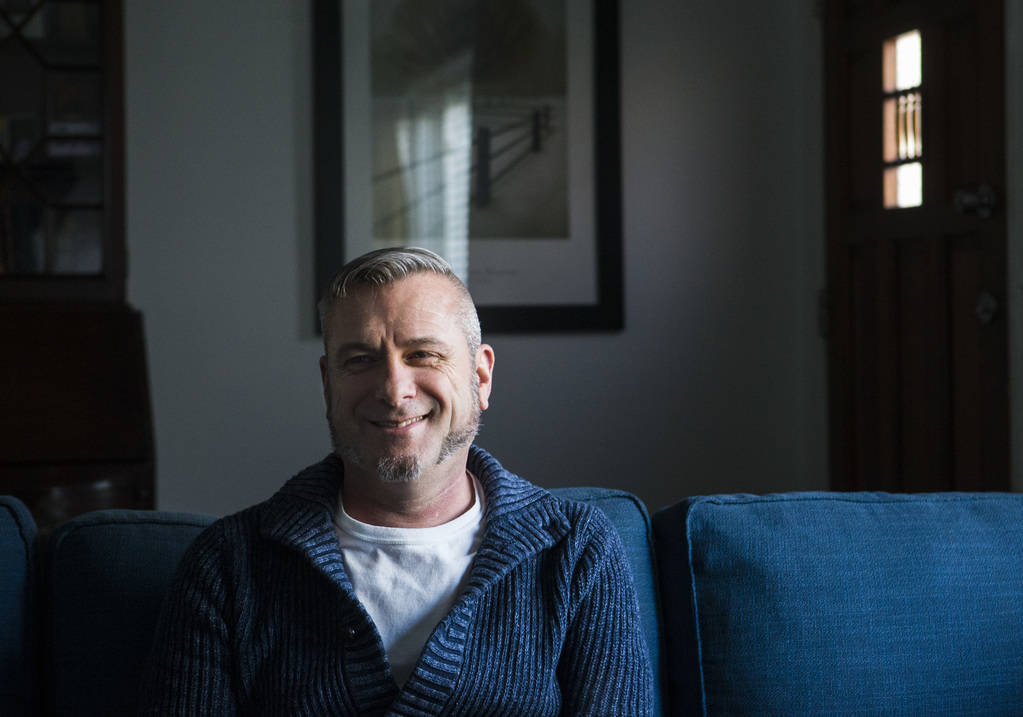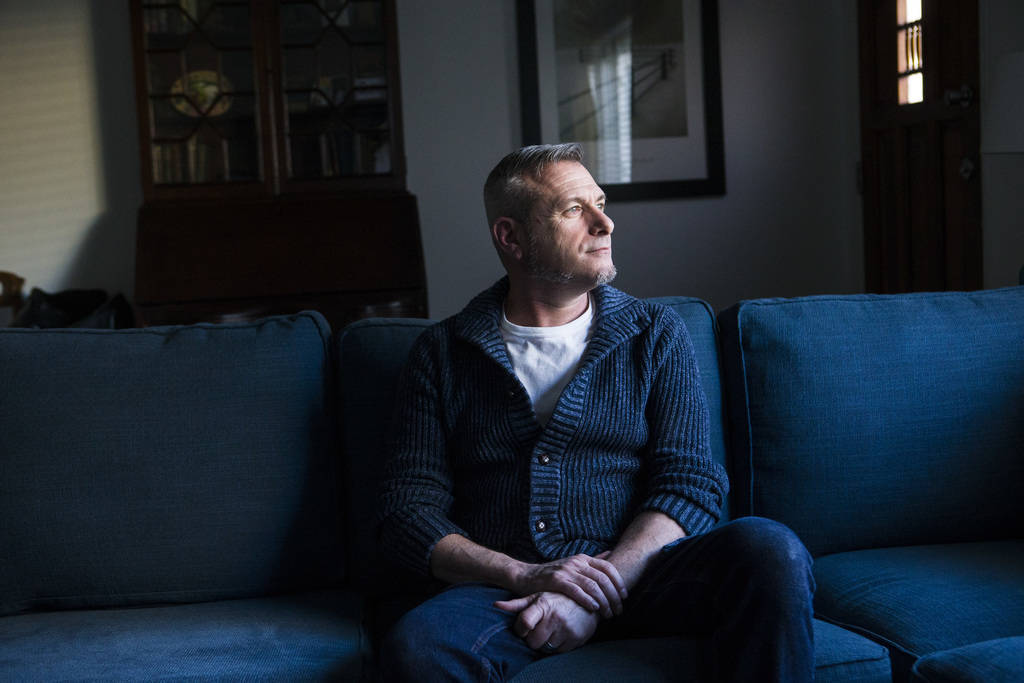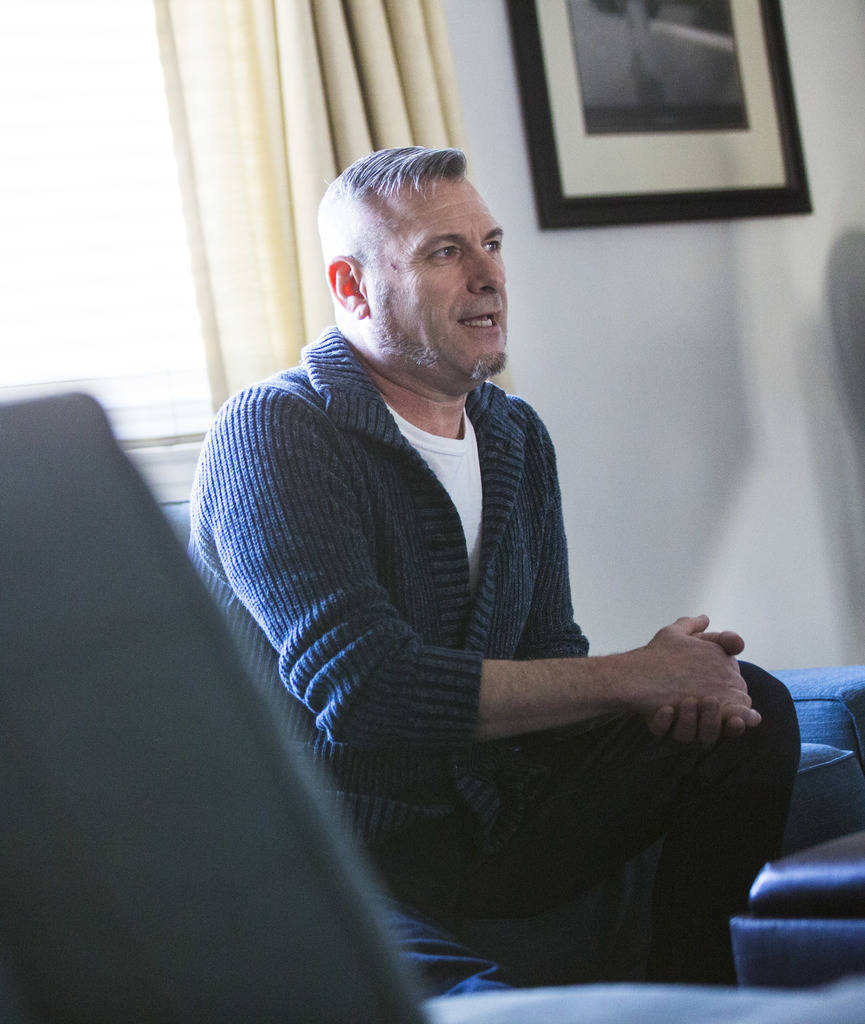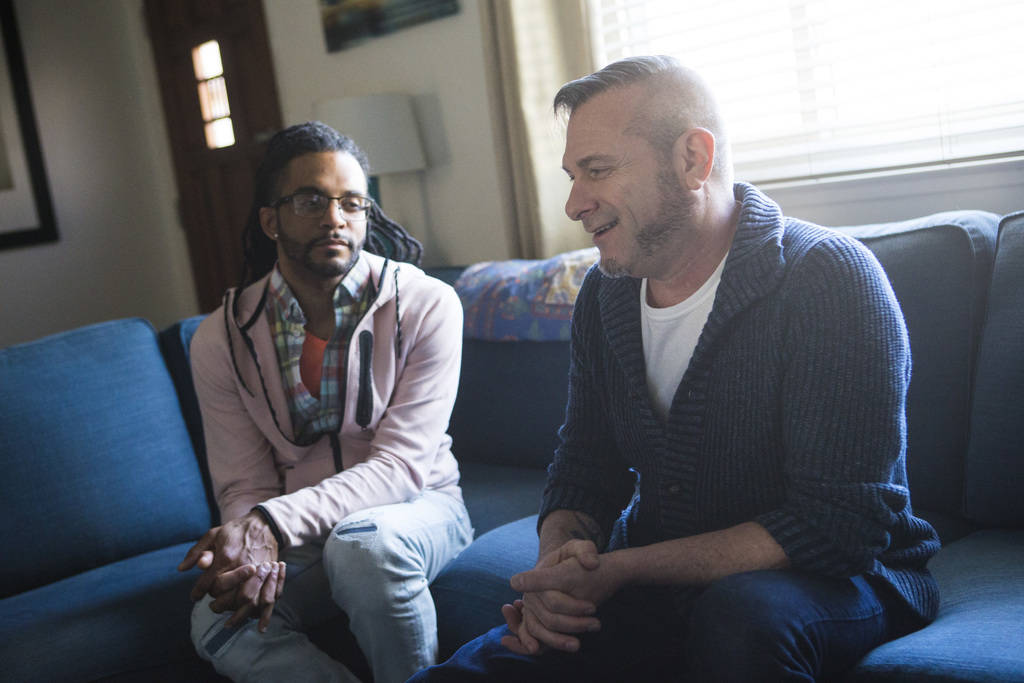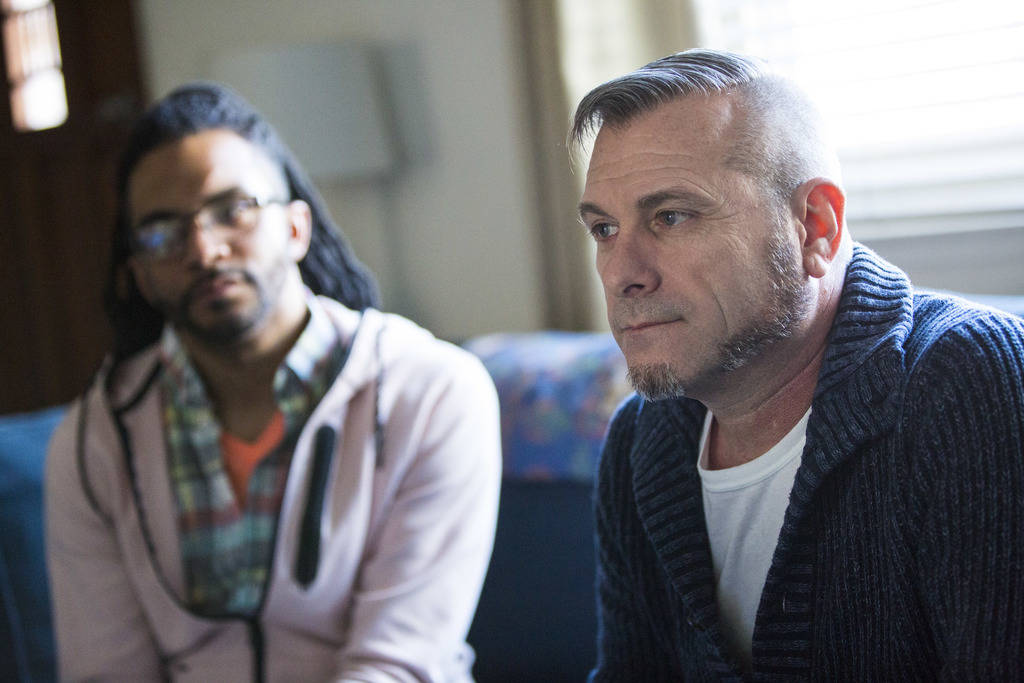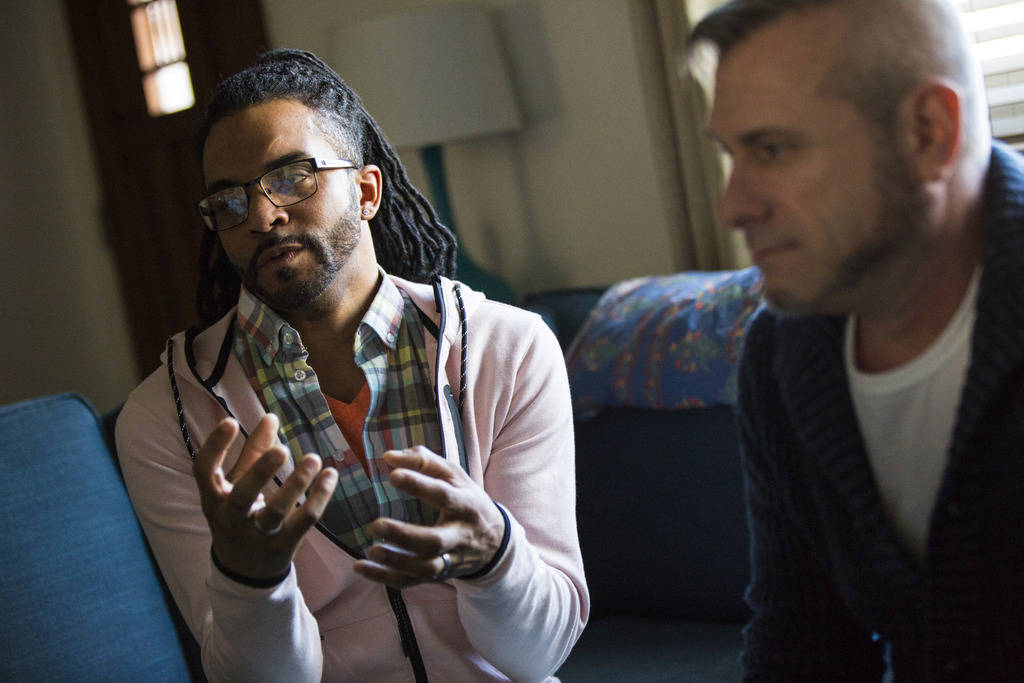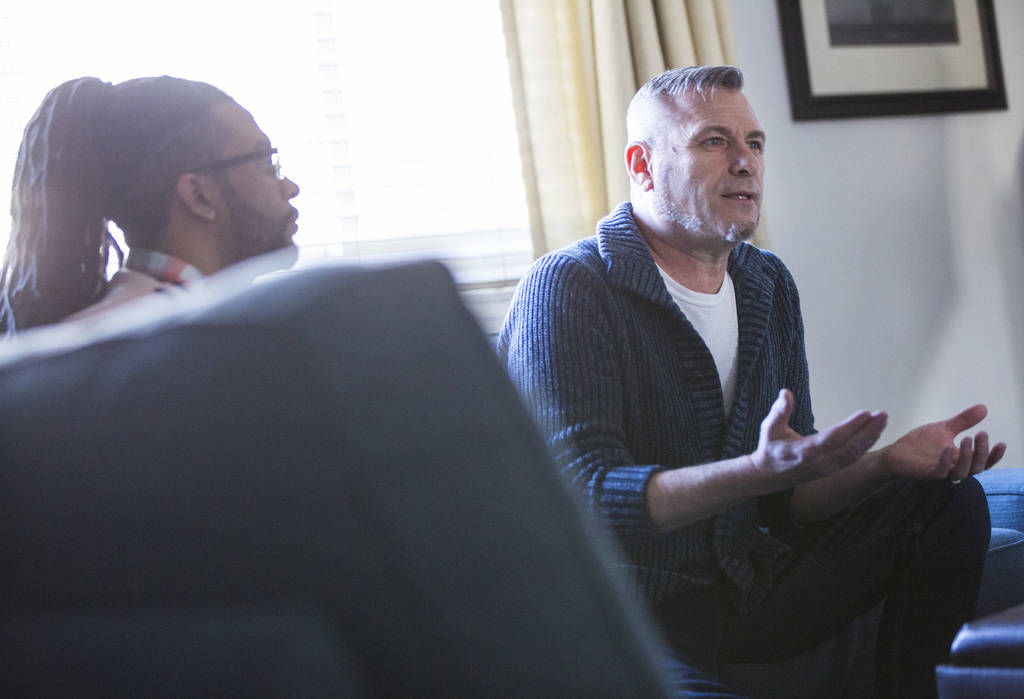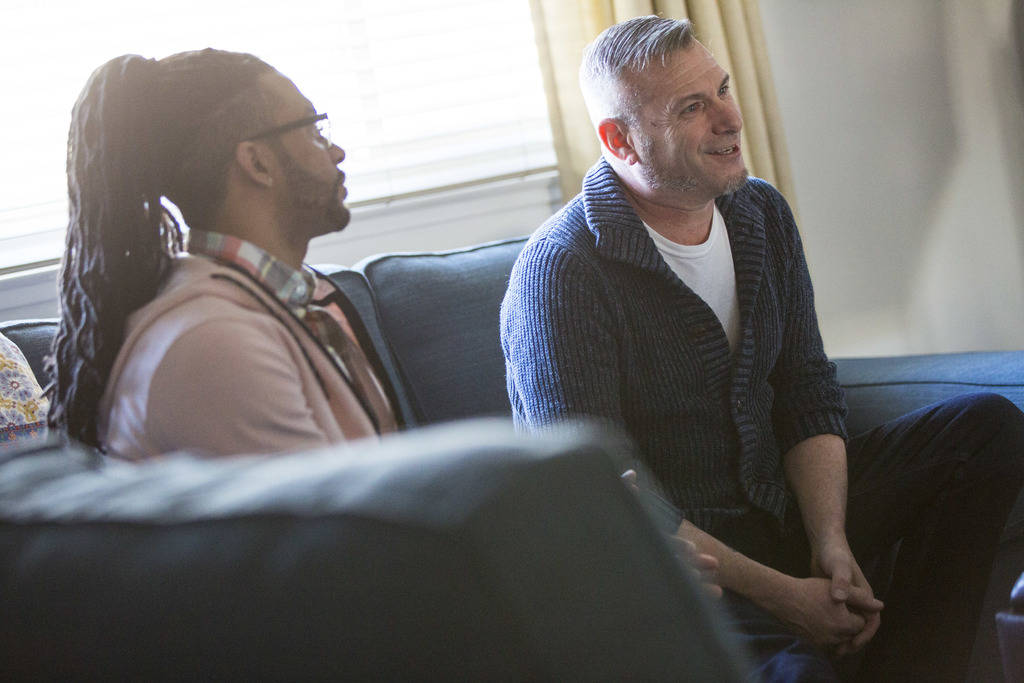HIV-positive for 30 years, Las Vegas man hosts life celebration
“Celebration of life” usually brings to mind a service for someone who has died. When Jim Foley throws his own celebration of life gathering on Saturday, the event will commemorate 30 years that Foley has overcome what was supposed to be his own death sentence.
In 1988, at age 26, Foley was diagnosed as HIV-positive. Today, he says he’s lucky to be alive and will gather with family and friends to celebrate that simple fact.
“It just kind of hit me,” Foley says, and 30 years “just seemed like a significant milestone.”
And it’s no accident what he’s calling this party.
“I had heard that phrase so often, and mostly it was (for) people who had passed,” he says. “I was supposed to pass, but I’ve been given these 30 years, and I wanted to tell everybody about the life I’ve been able to lead after getting bad news.”
More than that, Foley says, “I want to change people’s minds about living with HIV and what it means getting a diagnosis. I don’t want them to look at it as, ‘I’m going to be sick the rest of my life.’ I want them to know they can live healthy lives with this.”
The diagnosis
When Foley, now 56, was diagnosed, “they gave you two to five years after diagnosis,” he says.
Foley — a Boston native who was living in Las Vegas when he got the news — says he contracted the virus from the person he was dating at the time. When both were tested, Foley’s partner came back positive. Foley didn’t. When another test six months later revealed Foley to be HIV-positive, he wasn’t surprised.
The couple had been employing safe sex practices, although Foley remembers a condom breaking a short time before. “I knew it only took one time for you to have an encounter with someone who was unprotected or (have) a busted condom. (Foley and his partner eventually ended their relationship for, Foley says, other reasons. His then-partner, too, is marking 30 years of living with HIV.)
“When they gave me the diagnosis, I remember the woman saying, ‘Do you understand what I’m telling you?’ I said yes. She said, ‘You don’t seem shocked.’ I wasn’t. I think it shocked her.”
Still, the magnitude of the diagnosis took years to sink in. “I don’t want to call it denial … ” Foley says.
He pauses. “Probably denial,” Foley concedes with a laugh. “It’s just the fact you keep living your life, acting like it’s not there.”
Foley tried treatment with the drug AZT, which “made me super-sick, so I stopped taking it. I was only on AZT for a couple of months and I could not tolerate it.
“I just figured, know what? I’m going to just live life to the fullest. I traveled all over the place. I worked in one of the casinos. I was in California a lot. It was close to the beach. I love the beach.”
Generally, “I was very lucky,” he says “I had no issues until the crypto.”
‘It’s time’
In 1994, Foley was diagnosed with cryptosporidiosis, a parasitic infection that can be life-threatening to people with weakened immune systems, including those who are HIV-positive or have AIDS.
Foley had an agreement with his doctor that “when it was time for me to tell my family what’s going on — they lived 3,000 miles away — I said, ‘Just tell me it’s time.’
“So I’m sitting in the doctor’s office and she came in and gave me the diagnosis. ‘You have cryptosporidia.’ I said, ‘How do we fix it?’ She said, ‘We don’t. It’s time.’
“It took a second. I had a total meltdown.”
Foley never had told his family that he was gay or that he had contracted HIV, and he didn’t share that news with many others.
“It was very hard to trust anybody with that information, because you could lose your job,” he says. “If your insurance (company) found out you’re HIV-positive, they’d drop you off of insurance.”
A few weeks later, he traveled to Boston to tell his family “that I was gay, I had HIV and I would be dead in six months. It was probably the hardest conversation I’ve ever had to have.”
But Foley found his family to be “unbelievably supportive.”
“There were a couple of concerns. I remember that my brother’s wife called her pediatrician and said, ‘My brother-in-law has AIDS. Is it OK (for him) to be around kids?’ He said, ‘The kids are more of a threat to him than he is to them.’ “
Foley was pleased that his family wanted to educate themselves. “I wanted them to be educated and informed. I wanted to be able to enjoy the last six months and not have them afraid of me.”
Fighting a second infection
Treating cryptosporidiosis meant giving the body’s immune system the chance to fight it off. For Foley and his compromised immune system, that was a problem.
Foley notes that a healthy person can have 700 to 1,200 T cells, which are part of the body’s immune system. At one point, “I (had) five. Not 500. Five,” he says. “So I named them Huey, Dewey and Louie and Fred and Barney. I tried to have a sense of humor about the whole thing.”
The crypto ravaged his body, eating away at his gallbladder, which had to be removed in an operation that normally meant an overnight stay but left Foley hospitalized for more than a week.
An upward turn
Foley returned to Boston, where he continued battling the double whammy of HIV and crypto. Dr. Jonathan Appelbaum treated Foley on and off there for about seven years.
“If I remember correctly, he was pretty far along,” Appelbaum says, with an immune system that “was not very good.”
“He was young,” Appelbaum adds. “At the time, we were seeing a lot of young people.”
In 1995, Appelbaum got Foley enrolled in a trial of a three-drug HIV cocktail aimed at halting the virus’ replication.
“I started to take the medication and things started to change,” Foley says. “My immune system started to come back. I started to gain weight.”
In 1998, he returned to Las Vegas, figuring that “if I still have time left, I’m going back to live my life.” He stayed in the drug trial for seven years, but “I think I was always waiting for the next thing and the next thing,” Foley says.
Finally, around 2012, the drug company that made the medication announced that people who took it are “going to live as long as their siblings, meaning genetics is going to kick in and you get high cholesterol, high blood pressure — whatever’s going on with the family is going to kick in. That’s when I started to be a little bit more comfortable.”
Now, he jokes, “I’m waiting for my genetics to take over to kill me.”
A good life
Today, Foley is happy. Grateful for the years he’s been given. Thankful that he’s here at all. Foley and his partner, Jeff White, 33, have been together since December 2015. They met when White took one of the “HIV 101” programs Foley teaches.
White, a former professional dancer and choreographer who now works in retail, also is HIV-positive. But, he says, their HIV status is just a diagnosis, only a number.
“We’re not these frail people,” he says. “It’s not what it used to be. You can be living healthy, and there are preventive measures you can take not only to protect yourself but to protect your partner.
“We’re both HIV-positive. We protect each other. We get our labs done every quarter. We see our physicians. We — well, he eats healthfully. I try to do my best.”
“And we do date nights and (visit with) friends and all those healthy aspects of what relationships should look like,” White says.
Foley has been a full-time HIV educator for the past 12 years and was a volunteer for eight years before that. He considers himself “extremely fortunate to have survived. Thousands and thousands of people didn’t make it. Even that trial study, I found out at a dinner recently that just over 50 percent of us made it out alive.
“I don’t know why me. But my friends and my mom have all said to me that ‘there’s a higher power that had this planned for you.’
“I don’t take it for granted, that’s for sure.”
Appelbaum — now a professor and chairman of the department of clinical sciences at Florida State University College of Medicine — lost many patients during the height of the AIDS epidemic. When Foley contacted him via Facebook, Appelbaum admits he was surprised to hear from him, “but, then, I wasn’t.
“Jim always had a very positive attitude, I think that’s what really makes a huge difference.”
“Everything just fell in my favor,” Foley says, “and that’s probably why I push so hard in the community.”
Foley remembers doing his first AIDS walk in Boston, with his aunt, who asked: If he knew then what he knew now, would he change anything.
“I turned to her and I said, ‘No,’ because that wouldn’t make me the person I am today. I am who I am today because of what I went through.”
Contact John Przybys at jprzybys@reviewjournal.com or 702-383-0280. Follow @JJPrzybys on Twitter.
A bit of luck …
Long-term survival with HIV is becoming more common thanks to better medications and a better understanding about HIV works. But a bit of luck doesn't hurt, either.
"You could do everything right and still succumb to HIV," says Vince Collins, a longtime friend of Jim Foley and director of operations for The Gay and Lesbian Center of Southern Nevada, while other people "do everything wrong — abused drugs and didn't take their meds — but somehow are able to survive."
"What (Foley) had going for him was his youth," Collins says. as well as connecting with doctors who advocated for him and enrolled him in trial studies of cutting-edge medications.
"There are many stories out there," Collins says, of persons who "walked into the right clinical trials, and that linked them to the right medical centers and tireless doctors who would not give up and fought tooth and nail to keep them healthy."
Collins helped to organize Foley's upcoming party, which he calls "just a small gathering" of family members, friends and "people that sort of helped along the way. It really is a celebration of his not only surviving AIDS but also the work that he has been committed to over the years."
By the numbers
In the nation
1.1 million: Number of Americans living with HIV today
15 percent, or 1 in 7: Percentage of those living with the disease who are unaware they have it
38,739: Number of Americans who received an HIV diagnosis in 2017
Source: U.S. Centers for Disease Control and Prevention
Closer to home
439: Number of new HIV diagnoses in Clark County, 2017
486: Number of new HIV diagnoses in Nevada, 2017
10,079: Number of people living with HIV in Clark County, 2017
11,901: Number of people living with HIV in Nevada, 2017
Source: Nevada Division of Public and Behavioral Health HIV Reporting System



